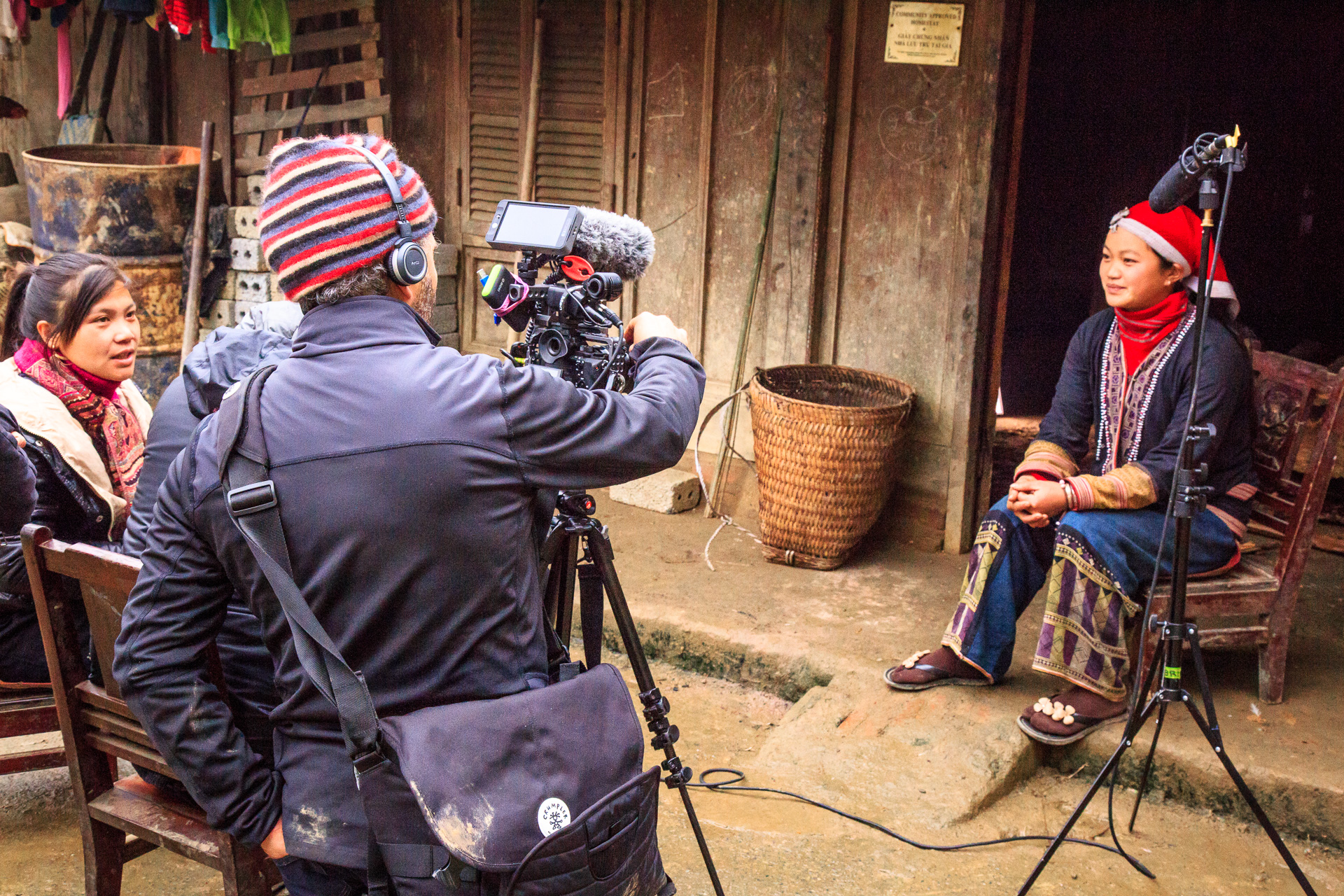Experienced travel documentary maker Brian Rapsey reveals how understanding communication can help your filmmaking practice.
 Photo © Brian Rapsey
Photo © Brian Rapsey
I love documentary filmmaking because I get to meet and interact with so many people that challenge and enrich my worldview. I’ve found during my time mentoring the World Nomads Travel Film Scholarship that the social skills required in the field are the most significant things the winners learn on assignment – far beyond the storytelling or technical skills.
The kind of relationship that you establish with your subjects is absolutely fundamental to the tone and quality of the film you will make – so it’s important to communicate effectively, tactfully and efficiently in the field. If you do that well, everything else should fall into place, and the filming of interviews, observation and action sequences will be a breeze. You will save time by not following false trails or unnecessary leads, and you will also be less likely to give your subjects false expectations about how they are going to appear in your film.
Understand what you want, but be flexible
You are still forming your ideas, so your initial meeting with the subject of your film is an opportunity to research them. You need to strategically communicate and interact with your subjects from the moment you arrive. It's an opportunity to test your ideas about your film and your subjects’ role in it. Filming a documentary can be a brilliant process of discovery, not just an exercise in executing a preconceived filming plan. I do a few things:
- I talk about myself and my intentions as little as possible
- I seed the conversation with topics and subjects relating to the themes of the film and see where the conversation takes us
- I fossick for ideas and opportunities to film that may better illustrate the themes of my film
- I infer what things I might be able to film that can create a portrait of their character. I do this by observing their environment, the things they physically do or how they interact with others.
Be vague
Documentarians need to be deliberately vague about their intentions so they don’t lock themselves into promises they may not deliver on as well as giving themselves scope to refine their directorial ideas. It's also important not to give away too many of your ideas about the project – so that subjects second-guess you and merely tell you what you want to hear rather than reveal themselves in an open way. So, when you first sit down with your subjects, keep it simple and don’t try to explain the whole grand plan. However, it is important to answer any questions they have, and tell them that you will ask them to sign a release form (permission to use their filmed material) at the end of the process: this will hopefully allay any fears they have of being filmed as well as hold yourself up to a high ethical standard.
Keep it fresh
You also need to manage the conversation so your subjects don’t give away the emotion or details of the story that you want to capture fresh in the actual interview. What you need to do is pick up cues about what will be good in an interview and save the actual telling of those stories for the right moment. People will almost always want to tell you their story when you first meet them. You need to tell them to save it for later during a filmed interview.
Strike a balance
You want to establish a genuine connection (by establishing rapport) but also be focused and directed on the task at hand. You need to scope out what you’ll film with them (activities, action sequences, portrait shot moments) by looking for opportunities that you may not have been able to research beforehand and then control your commitments to film ones that actually have a thematic purpose to your film. Do all this scoping in casual conversation so it appears natural when in reality you are actually carefully guiding the interaction with all this in mind. This will hopefully not make them too self-conscious, with the result that they ‘put on a performance’ of what they think you want to see.
Segue into filming
At a certain point, I will segue into filming sequences in an observational way – simply by being able to predict what is likely to happen (or by subtly cueing an activity to take place). At other times there is often a predictable structure of events, which I have clarified and prepared myself for via my conversations with the subject. Also, I often attempt to “naturalize” my subjects to being filmed – as they will most often be self-conscious at first – by filming the less important material first.
This also applies to filming interviews. I usually start by chatting casually before segueing into the real interview content – without drawing attention to the fact that the camera is rolling. I don’t ask questions but guide the conversation along areas of interest. Most amateur filmmakers interview their subject as if it’s a news interview, and this usually doesn’t match the style of travel documentary that they are trying to make. Your subjects usually mirror the energy you project out to them – so you need to be a bit of a chameleon to reflect the sort of person you know they are.
Related articles
Simple and flexible travel insurance
You can buy at home or while traveling, and claim online from anywhere in the world. With 150+ adventure activities covered and 24/7 emergency assistance.
Get a quote
No Comments